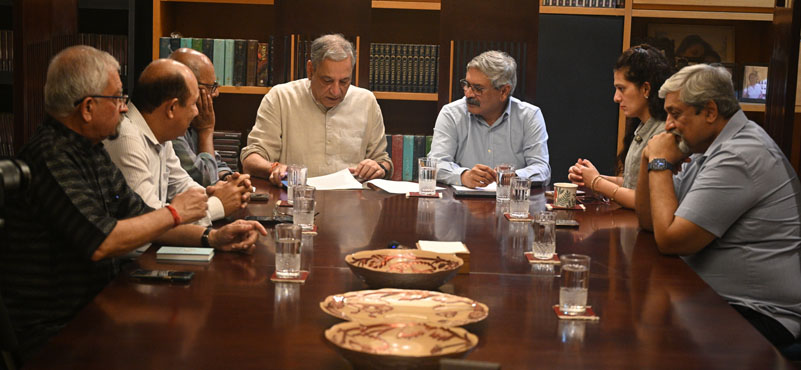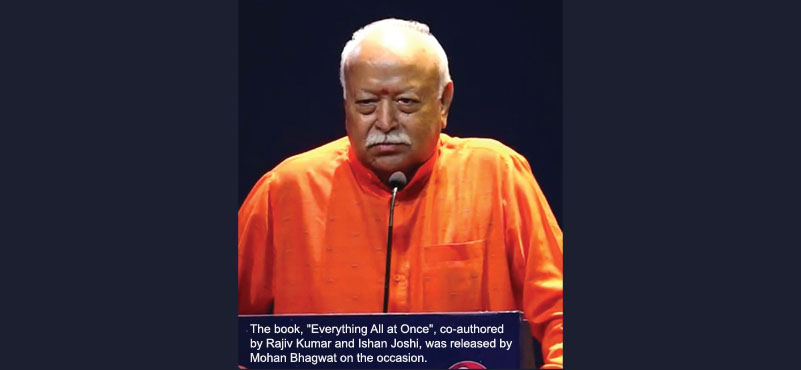Another edition of a round table conversation, convened by us, bringing together expert opinion on the changing dynamics in our region, South Asia. There are fast paced developments that call for careful calibration, slow and steady, determined and realistic. The conversation was moderated by the editor, Navin Berry.
 Navin Berry: The situation in South Asia is changing fast. Too many developments, too fast. For starters, there is Field Marshal Munir, who suddenly has erupted on the scene. Is he the new go-between President Xi and President Trump, because he keeps shifting from one capital to the other?
Navin Berry: The situation in South Asia is changing fast. Too many developments, too fast. For starters, there is Field Marshal Munir, who suddenly has erupted on the scene. Is he the new go-between President Xi and President Trump, because he keeps shifting from one capital to the other?
What kind of play is happening in the United States? Is this the America we know? And this is America which has come to pass where just about every country is being challenged, friend, foe, whatever. And suddenly, not only we are at the receiving end, but we are also finding that he’s cozying up to with everybody else around us. And one other thing which we all know again, that when we had a coup in Bangladesh and Sheikh Hasina was ousted, the first thing we heard was that the new incumbent is a prodigy of Hillary Clinton, and there’s an American influence happening there.
And then we found that China has also come into Bangladesh. And now we find Pakistan, already closing up to China. CPEC phase two launched just a few days ago, has now warmed up with President Trump’s family who is very busy on the cryptocurrency field. What’s happening?
So can I ask from a political standpoint, from a defense standpoint, because we seem to be challenged at this point in time. So, Anil, would you like to start from a naval perspective? Where do you see any new threats, any changes that you foresee happening on our seas?
THE PANELISTS





Vice Admiral Anil Chopra: Well, I believe that any downturn on trade relations will affect other things also. I’m not so sure the QUAD Summit will be here this year. I think it should be here, but we are the hosts and we are supposed to get on with the business. Under the present circumstances, I don’t see this happening for at least another couple of months. But it’s important for us because that is the only, shall I say, interface with the developed navies of some of the developed countries.
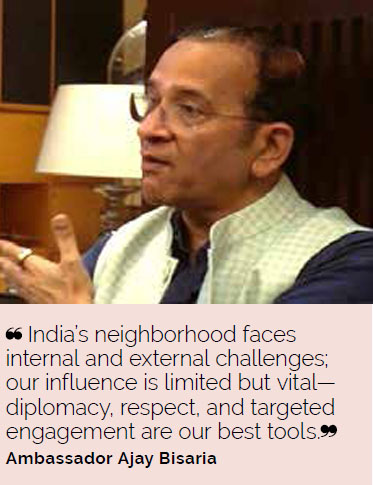 So purely from a naval point of view, it’s important for QUAD and Malabar to carry on. But I don’t see that. Already in the media, we have heard subsequent rounds of trade talks being postponed and put on hold. So, from a naval perspective, one – it may affect our procurements. Two, it will probably lead to less interaction with the United States Navy, and consequently with the other Navies, at least in the near future.
So purely from a naval point of view, it’s important for QUAD and Malabar to carry on. But I don’t see that. Already in the media, we have heard subsequent rounds of trade talks being postponed and put on hold. So, from a naval perspective, one – it may affect our procurements. Two, it will probably lead to less interaction with the United States Navy, and consequently with the other Navies, at least in the near future.
I personally think this, whatever has happened for whatever reason, is going to affect broad spectrum, multi-sectoral interrelationship on many fronts, unless it is sorted out in the next few months. From the naval perspective, ever since the regime change in Bangladesh, the Chinese have lost no time. They’re already supplying 76% of all military hardware to Bangladesh. They’ve upped that. And very soon, Bangladesh already could be the next vassal state, much like Pakistan.
In fact, more than Pakistan. So, we’ve been talking about one and a half, two and a half, three and a half front war. But I think what we all agree, at least in the military, is now we are fighting a single front with three possibilities. One front coming from Pakistan to Bangladesh, all supplied by China, all having Chinese arms, all having Chinese modern control and other systems. This is a very serious affair. I don’t know how many people actually understand this, the seriousness of where we are at the moment.
 So, the power differential between China and India, the military power differential, the economic power differential, the technological power, is now quite considerable. And I think it will be quite a challenge to our government and to everybody as to how to deal with this power differential if your ties with the US go south for a long time.
So, the power differential between China and India, the military power differential, the economic power differential, the technological power, is now quite considerable. And I think it will be quite a challenge to our government and to everybody as to how to deal with this power differential if your ties with the US go south for a long time.
Because since we don’t have the capacity and capability despite our best efforts. We don’t have the economic power to be able to quickly reach there either. So, we have a problem. And the Bangladesh Navy, since you were talking about the Navy, people ask me, which are the Chinese bases in the Indian Ocean? And I used to say Karachi.
But what they’ve done in Karachi is they have built up, prepared maintenance facilities for the same type of ships which they were deploying to the Indian Ocean, which they are bringing to Pakistan. So naval ships, when they’re going to a base, we’re not looking for just food, we need repairs of our weapons systems, sensors. We need to replenish our reserves, our ammunition. So now, Karachi has become a full -fledged Chinese naval base.
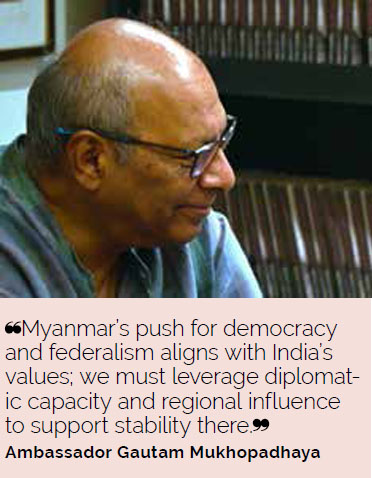 And I think Chittagong, or one of the ports that have been developed in Bangladesh. Now, we may be whatever we are, but to handle this sort of naval, the means of naval power, in the Bay of Bengal, in the Arabian Sea, and with PLA Navy. I don’t want to make it sound like things are terrible, but we must be cognizant. We must be cognizant as to what is happening on our region borders, which is Pakistan, China, Bangladesh, without the US, now, necessary backing.
And I think Chittagong, or one of the ports that have been developed in Bangladesh. Now, we may be whatever we are, but to handle this sort of naval, the means of naval power, in the Bay of Bengal, in the Arabian Sea, and with PLA Navy. I don’t want to make it sound like things are terrible, but we must be cognizant. We must be cognizant as to what is happening on our region borders, which is Pakistan, China, Bangladesh, without the US, now, necessary backing.
Navin Berry: Since we are on defense, Air Marshall Hora, would you like to talk about the skies over us?
AVM Rajiv Hora: I quite endorse that we are at the moment, I would call it, an inflamed neighborhood. You don’t know when this is going to turn toxic, when this is going to come up, when this tariff war and the US, symbolically, virtually, and in reality, this pulling away makes you weak. Between the China -US -India triangle, we always thought we were in balance. But this has imbalanced us. Now, with this imbalance, it makes you vulnerable.
And if I go back to the prince Machiavelli, the moment the state is weak, the neighboring state will attack. I’m not saying it’s happening, but this is wisdom, that be prepared, you become much more vulnerable. And accordingly, we’ve just learned a lesson from Operation Sindoor, we’ve just learned a lesson from Ukraine, a huge amount of investment will have to be made. It’s not one front, two front, it is the entire front which has to be catered for. So, one is obviously re-looking at your theatre command concept, because you, whatever resources you have, you always try to, what you have, you need to centralize your sources. Call it whatever you may, call it whichever way you want, but wars have to be centralized.
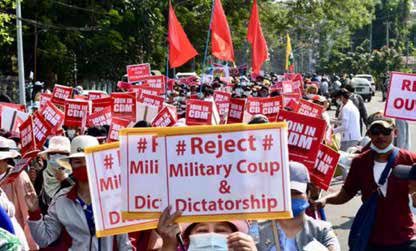 With the resources, huge investment will have to go into the Air Force, because shifting from one, from the north, to the east, to the west, with the current, what you have, it is gone. The numbers that you need to have and the numbers that you have, it’s not rocket science. So, we need to play our cards very, very clearly at this moment. No rhetoric, no nothing. Build up capability and keep your ammunition.
With the resources, huge investment will have to go into the Air Force, because shifting from one, from the north, to the east, to the west, with the current, what you have, it is gone. The numbers that you need to have and the numbers that you have, it’s not rocket science. So, we need to play our cards very, very clearly at this moment. No rhetoric, no nothing. Build up capability and keep your ammunition.
General Jagatbir Singh: From an army point of view, it’s almost the same situation. It is the same. One thing always stands out, as far as our land borders are concerned, wherever you look, there’s nowhere to go out. So, the only option was the sea and sir has talked to you about the scene because one side you have Pakistan, the other side you have China, third side you have Nepal but you can go just little bit in Nepal, after that again, you come across China and the other side you have Myanmar. And what has happened right since independence we’ve been engaged in some manner or the other in each of our borders and because of that, unfortunately, our focus has always been changing. So earlier you said you don’t need arms. Then you were confronted with 1947-48. You fought over there.
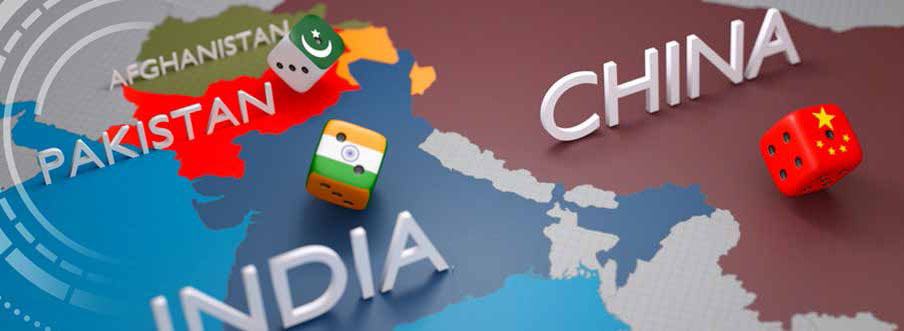
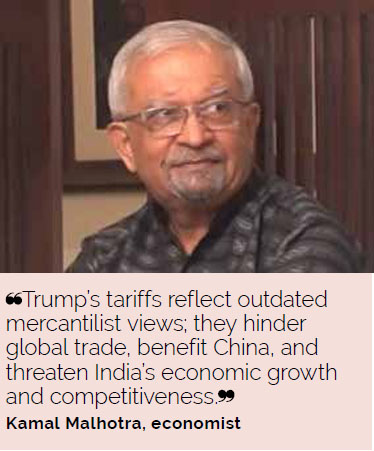 Then you started building up. Then you had the problem with China. Suddenly you pushed all the way towards, you know, all your formations eastward. And till now the Navy had not come into play. And in 1962 the Air Force also never came into play. Then, you have now 60 years since 1965, and Pakistan felt that it was time to take advantage of India because it had been weakened after the 62 war and because the then Prime Minister had passed away. So, at that time, who came to your aid? At that time, both India and Pakistan were buying western equipment. After that, they put sanctions. We went towards the Soviet Union, they went towards China.
Then you started building up. Then you had the problem with China. Suddenly you pushed all the way towards, you know, all your formations eastward. And till now the Navy had not come into play. And in 1962 the Air Force also never came into play. Then, you have now 60 years since 1965, and Pakistan felt that it was time to take advantage of India because it had been weakened after the 62 war and because the then Prime Minister had passed away. So, at that time, who came to your aid? At that time, both India and Pakistan were buying western equipment. After that, they put sanctions. We went towards the Soviet Union, they went towards China.
1971 was little different because that time all three services were in play. And after that, the minute General Sundarji came in and you carried out ‘Brass Tacks’, and all. After that, Zia played this master card of his, in the form of igniting the valley. So since then, you’ve always been pushed into, where, in what manner you are fighting now? Suddenly you switched, you said that, our major formations should now, instead of looking westward, they are pointing in the eastward direction. If you look at it as one consolidated threat, looking at it, moving your formations in different places all over, at some point you’ll have an issue.
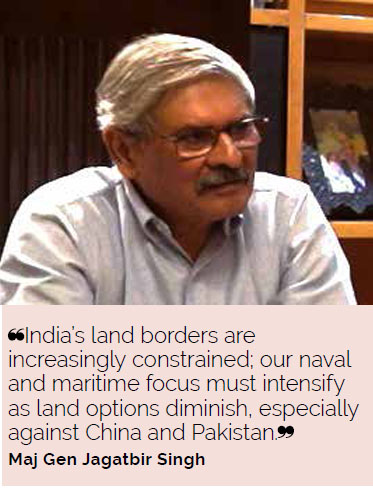 Now he talked of Ukraine, or there are many lessons from Ukraine and other things, but what has come out from these two conflicts and that’s where we are going to have a problem, is that one of these things that has come out very clearly is that a person who is a member of the UN Security Council or someone who has got unconditional support of a member of the UN Security Council can get away with anything. So you’ve seen what’s happened in Russia and you’ve seen what’s happened in Israel. Now as far as India is concerned, who is our friend? Who gave it unconditional support in the UN Security Council? It was Russia.
Now he talked of Ukraine, or there are many lessons from Ukraine and other things, but what has come out from these two conflicts and that’s where we are going to have a problem, is that one of these things that has come out very clearly is that a person who is a member of the UN Security Council or someone who has got unconditional support of a member of the UN Security Council can get away with anything. So you’ve seen what’s happened in Russia and you’ve seen what’s happened in Israel. Now as far as India is concerned, who is our friend? Who gave it unconditional support in the UN Security Council? It was Russia.
Now you are targeting Russia. Whatever we say, sir, talked of inventory of Bangladesh – 73.6 % being of Chinese origin. Pakistan is in the 90s, if I am not mistaken. The bulk of our inventory was still Soviet. So whatever we say, will your spares keep flowing.
Consider your S-400s. The supply still hasn’t been completed, the amount they have yet to give you because of Ukraine war. Other spares, will they come? And now you’re going towards America to pick up aircraft, to pick up naval systems and other things. But if you’re having a problem with tariffs, will this affect defense spares? Will it affect defense ties?
So today you’re in a little precarious position and as everybody said, until you build your own capacity, until you build your own capability, and you can’t fight with other people’s templates. You have to look at it from your point of view. So that is a challenge which we have today.
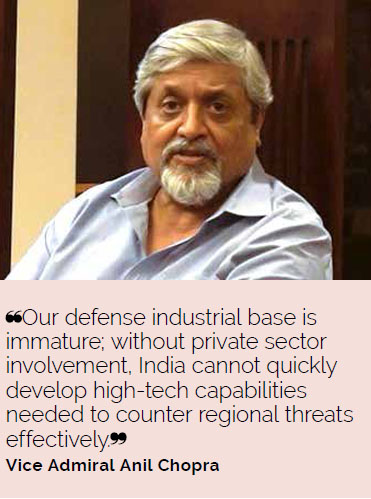 This meeting with China is very good, reaching out to China. It’s a good thing because they’re trying to diffuse certain tensions along the LAC.
This meeting with China is very good, reaching out to China. It’s a good thing because they’re trying to diffuse certain tensions along the LAC.
But two things stand out. The (Chinese) foreign minister came, I think one of the main aims of his coming to India, was to invite the Prime Minister to SCO He was wondering, especially after the problem that took place when the RM went there and the declaration wasn’t signed because we raised certain issues. I think one of the issues was that the PM to attend SCO. After that, their FM visited Afghanistan, where I think they want to extend the CPEC, and then he visited Pakistan. And in Pakistan, he made two statements. Massive statements.
One is that when he was asked you visited three countries, he said the third stop is the final and most important. And the other thing he said is the army is the ballast of national security
I think, like you said, since Trump has come in, things have changed. He’s wanting to grab headlines with his statements. Very variable in his behavior, so no one knows where they stand.
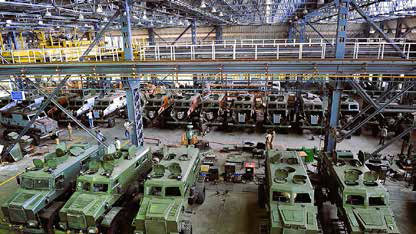 Vice Admiral Anil Chopra: It is a precarious situation at the moment. Primarily for our defense industrial base is immature. It cannot still provide anything which is visibly high-tech in the amount of time. It’s got tremendous time and cost overruns. If we had had the private sector more actively involved in defense industry, from the last 30-40 years, from earlier governments, then maybe we would have been. But what do we do today? We don’t have capacity to arm ourselves with the kind of high-tech weaponry that we need.
Vice Admiral Anil Chopra: It is a precarious situation at the moment. Primarily for our defense industrial base is immature. It cannot still provide anything which is visibly high-tech in the amount of time. It’s got tremendous time and cost overruns. If we had had the private sector more actively involved in defense industry, from the last 30-40 years, from earlier governments, then maybe we would have been. But what do we do today? We don’t have capacity to arm ourselves with the kind of high-tech weaponry that we need.
Navin Berry: With all this emergency that we have on our back right now, do you see that the Made in India, Make in India program may have to be given a little pass or pause?
Vice Admiral Anil Chopra: Not really. Where are you going to go? If you don’t want to go to America, you can’t go to China. Russians are in no position to supply you. They haven’t given the fifth S-400 as yet, nor have they given the fourth. They don’t have the capacity to do what the Soviets do.
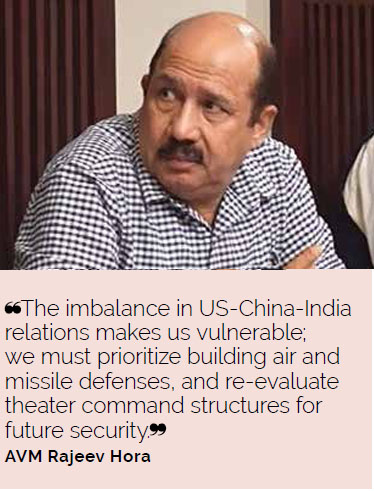 Russia is not the Soviet Union. We still haven’t figured that out. They’re not capable, as the Soviet Union was, to be able to supply us. Do you think Israel will carry on supplying us or the EU if American pressure comes in? So, if you can’t get from anywhere, it would have been okay if we had had our own industry. But our own industry is making low-end products, from boots to uniforms to some component in the supply chain.
Russia is not the Soviet Union. We still haven’t figured that out. They’re not capable, as the Soviet Union was, to be able to supply us. Do you think Israel will carry on supplying us or the EU if American pressure comes in? So, if you can’t get from anywhere, it would have been okay if we had had our own industry. But our own industry is making low-end products, from boots to uniforms to some component in the supply chain.
Nobody in this country is making from scratch a full-fledged platform, totally indigenous. Our ships are well -Made in India, but the sensors and weapons are still coming from abroad.
The same with our other equipment. Where does the engine come from? Germany. Where does the transmission, the suspension system come from? Germany. Where does the night sights come from? France. I mean, these are all things. What do you manufacture in India, entirely on our own?
AVM Rajiv Hora: On the Air Force, in the last 10 years, a great deal of inventory has come from the United States. Now you need to watch out for those supply chains. And this will impact your capability.
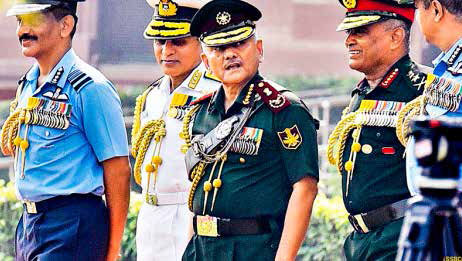 Vice Admiral Anil Chopra:Americans are pretty good with contracts. They won’t go back. If they go back on the contract, they will lose credibility forever. We don’t deal with the government. We deal with the private companies. So those companies will continue to supply what is contracted for, in my assessment. But getting more technology and new technology, the trouble with China is not just the capacity. Capacity is first level. Capabilities, I mean the capabilities of AI and space in particular, they are now in level with the United States.
Vice Admiral Anil Chopra:Americans are pretty good with contracts. They won’t go back. If they go back on the contract, they will lose credibility forever. We don’t deal with the government. We deal with the private companies. So those companies will continue to supply what is contracted for, in my assessment. But getting more technology and new technology, the trouble with China is not just the capacity. Capacity is first level. Capabilities, I mean the capabilities of AI and space in particular, they are now in level with the United States.
Navin Berry: How much of this has got aggravated in President Trump’s tariff wars?
Vice Admiral Anil Chopra: I look at President Trump from his domestic agenda. President Trump, if you study him, forget the personality, his basic focus is on changing America, what has happened in his perception of that. So, it’s that focus on his domestic front, one of the things he wants to do is to bring down the $37 trillion debt. For that, he needs to do many things. I think tariffs is part of that.
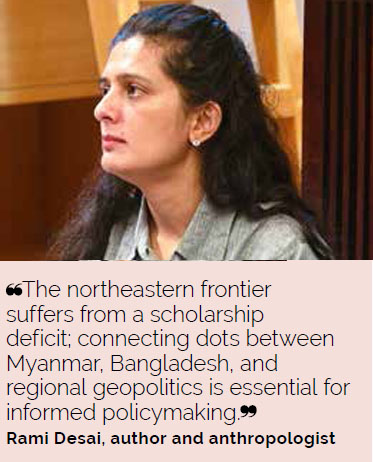 Where we have got affected because of what has happened with the sale of Russian oil, there’s nothing that we can do about it now. But it would be interesting to see whether our trade agreement now moves through. In the immediate next few months, we’re supposed to do a QUAD summit with Trump coming in. We are supposed to do an FTA. We are supposed to do many things which were signed up for in February. We are supposed to do a new 10-year defense framework. It’s September. Just, four months left.
Where we have got affected because of what has happened with the sale of Russian oil, there’s nothing that we can do about it now. But it would be interesting to see whether our trade agreement now moves through. In the immediate next few months, we’re supposed to do a QUAD summit with Trump coming in. We are supposed to do an FTA. We are supposed to do many things which were signed up for in February. We are supposed to do a new 10-year defense framework. It’s September. Just, four months left.
Navin Berry: Kamal, would you comment now on the Trump’s tariff wars and then we’ll move to the diplomatic side.
Kamal Malhotra: On Trump’s tariffs, he has a very old-fashioned, what we economists call, mercantilist view of trade, which goes back to the 19th century. His heroes are Alexander Hamilton and President William McKinley in the United States. Now, tariffs at that time were used in a very mercantilist way. That is a very different period from now. So, Trump is doing a lot of self-harm to the United States. The only winner is going to be China.
And the acceleration of China’s rise is essentially being facilitated by the United States in many ways. But one major way is through the tariffs and its tariff wars. Because if you look at all the data now, it is now beginning to become clear even to non-economists that you’re going to have three things happening simultaneously leading up to 2026 in the US. One is, lower economic growth, in fact, negative economic growth, leading to a recession, increased unemployment, and increased inflation, what we call stagflation. This has not happened in the United States since the OPEC oil crisis of the 1970s. Now, when it comes to South Asia, basically, South Asia doesn’t matter to the United States.
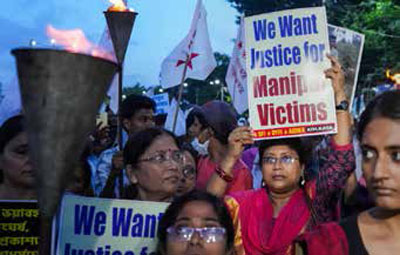 What India needs to realize is that, in economic terms, South Asia does not matter, including India. If you look at India’s trade with the United States, it accounts for very little of what the United States needs and all of it is replaceable. This is from some other source. This is very unlike China, where China has the United States by its throat. Why did all the tariffs come down dramatically on China?
What India needs to realize is that, in economic terms, South Asia does not matter, including India. If you look at India’s trade with the United States, it accounts for very little of what the United States needs and all of it is replaceable. This is from some other source. This is very unlike China, where China has the United States by its throat. Why did all the tariffs come down dramatically on China?
Very quickly, it was when they basically said they would withhold sending rare earth minerals and magnets to the United States. General Motors in Detroit was twiddling their thumbs for one month because they had no magnets. So, they couldn’t produce anything.
China said they will stop importing any agricultural products from the United States. That’s MAGA base, the agricultural farmers who were dependent on China for their soybean and corn exports. China just said overnight, we’re stopping this. These are only two examples.
There are many others. These are not replaceable and certainly not on the scale that the Chinese market provides, which is a much bigger scale than the Indian market, even though the population is roughly the same. The effective purchasing power in China is way higher. India’s effective market is 10% of the population, 150 million people. China’s effective market is at least two or three times that. So, the effective market size, effective purchasing power, is way higher. India’s market is neither deepening nor widening.
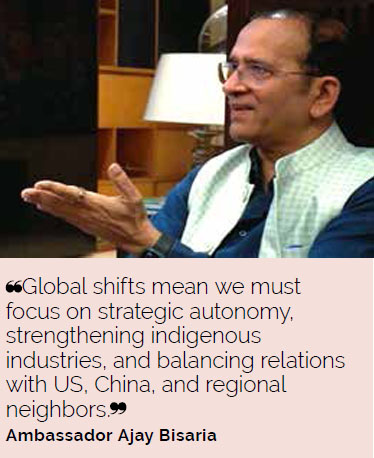 We are stuck with 10%. How much more will that 10% buy? They can’t. The 800 million people are on handouts. The balance is essentially living hand to mouth. So, we do not have an effective market in the long run. We simply have benefited so far by virtue of absolute numbers, which is 150 million. But China is three times that size. Now, the rest of South Asia as a market for US products is irrelevant. India, too, as I said, is not that important. Trump can do business with other countries, and there is nothing that India supplies to the US, whether it’s footwear, or whether it’s garments, or whether it’s even jewelry, that they cannot import from somewhere else. Unlike China, unlike Brazil, unlike even the Netherlands. Unlike Japan, in terms of auto. So, this is a big problem for India.
We are stuck with 10%. How much more will that 10% buy? They can’t. The 800 million people are on handouts. The balance is essentially living hand to mouth. So, we do not have an effective market in the long run. We simply have benefited so far by virtue of absolute numbers, which is 150 million. But China is three times that size. Now, the rest of South Asia as a market for US products is irrelevant. India, too, as I said, is not that important. Trump can do business with other countries, and there is nothing that India supplies to the US, whether it’s footwear, or whether it’s garments, or whether it’s even jewelry, that they cannot import from somewhere else. Unlike China, unlike Brazil, unlike even the Netherlands. Unlike Japan, in terms of auto. So, this is a big problem for India.
And as I was saying to some friends, because I’ve worked on trade issues for 25 years. I used to deal with India’s top people on trade then. And I asked one of them the other day, please send me what you’ve written on agriculture recently. So, he sent me an EPW article that he co-authored in 2018. And I said, well, you sent me pretty much the same thing 20 years ago. What has changed in terms of India’s competitiveness in agriculture? Nothing. What has changed in terms of India’s competitiveness in manufacturing? It’s actually gone backwards. Our percentage of GDP that comes from manufacturing has gone down to 13% from 18%. The target was 25%.
What whole product do we make? When I came back to India, I used to think it was pharmaceuticals. And in the late 1990s, India used to make pharmaceutical ingredients. Now, I find that all of India’s pharmaceutical ingredients are imported from China. So even pharmaceuticals, which India has claimed that it is the pharma capital of the world for generics, is not true. So even pharmaceuticals, on which Trump, by the way, will come up with very high tariffs soon. The tariff announcements are not over. Pharmaceuticals, which India thinks are excluded, is just a matter of time. But India doesn’t have a single product that matters. So, this is a big thing.
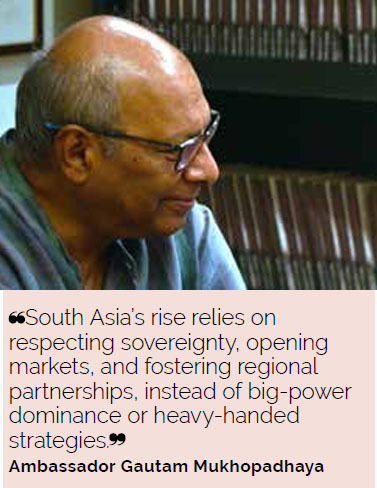 You talk about weakness in the defense area that you talked about. I’m talking about weakness in the economic area. India is not competitive. In every trade negotiation, that I have encountered over 25 years. India essentially is on the defensive. It has never been able to liberalize or open up, because you have to strategically open up. You open up, then you can be competitive. You can’t open up if you’re not competitive. And we’ve got how many millions of farmers? How can you open up on agriculture and dairy? If the US is looking for India as a major market for soybean and corn, quite apart from the genetically modified issue, which is a non-tariff barrier, you can’t open up.
You talk about weakness in the defense area that you talked about. I’m talking about weakness in the economic area. India is not competitive. In every trade negotiation, that I have encountered over 25 years. India essentially is on the defensive. It has never been able to liberalize or open up, because you have to strategically open up. You open up, then you can be competitive. You can’t open up if you’re not competitive. And we’ve got how many millions of farmers? How can you open up on agriculture and dairy? If the US is looking for India as a major market for soybean and corn, quite apart from the genetically modified issue, which is a non-tariff barrier, you can’t open up.
I mean, this is not just a development issue. It’s a political issue. The government will fight. No government wants to fall. So you open up on agriculture and dairy products, the government will fall, politically. So, from a trade point of view, and from a tariff point of view, India’s been a rock and a soft place. I’m not saying it’s a hard place. The soft place means you can sink further.
Navin Berry: How much of this is going to affect India’s relations with its neighbors?
Kamal Malhotra: I should say that all our neighbors, obviously, have got lower tariffs than India. India’s tariffs are only equal to Brazil. And Brazil has got those tariffs for entirely different reasons, or for somewhat different reasons, which are political. Part of India’s tariffs have a political dimension, but part of them are not political. But if you look at garments, Bangladesh is a major competitor, has been a major competitor. You have to break it down, then to see which garments you’re actually competing with Vietnam, with Bangladesh.
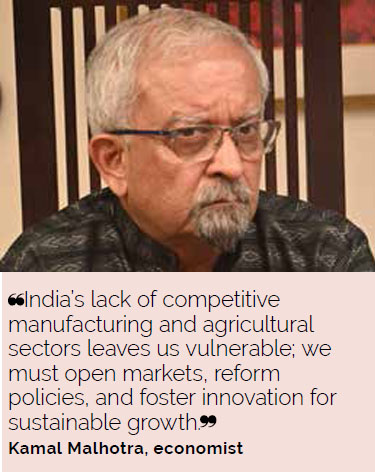 But both of them have lower tariffs than India. And the tariffs don’t account for inefficiencies or, let’s say, the cost of infrastructure. That’s part of the reason it has never been competitive, is that its cost of infrastructure is very high. There are a lot of inefficiencies. There’s a lot of corruption. And Vietnam, which I know well for 36 years. I can tell you that they came from nowhere, according to many people. But I saw it over 36 years, how they have grown as an economy. Very disciplined, very much able to compete, much better educated. Because primary education, primary health, all of these things matter. Even in trade, if you have an educated workforce, it’s a more disciplined workforce, it’s a more educated workforce. So even in the services area where India had an advantage, early advantage, but that was back-office stuff. Now you pick up the phone and call, I’ve lived in the Philippines, I can recognize the Philippine accent. I’ve lived in Malaysia, I can recognize the Malaysian accent. You’re more likely to get a Filipino or a Filipina or a Malaysian speaking to you than an Indian. And the Indian services thing hasn’t gone up. We don’t have the same competitive advantages in services.
But both of them have lower tariffs than India. And the tariffs don’t account for inefficiencies or, let’s say, the cost of infrastructure. That’s part of the reason it has never been competitive, is that its cost of infrastructure is very high. There are a lot of inefficiencies. There’s a lot of corruption. And Vietnam, which I know well for 36 years. I can tell you that they came from nowhere, according to many people. But I saw it over 36 years, how they have grown as an economy. Very disciplined, very much able to compete, much better educated. Because primary education, primary health, all of these things matter. Even in trade, if you have an educated workforce, it’s a more disciplined workforce, it’s a more educated workforce. So even in the services area where India had an advantage, early advantage, but that was back-office stuff. Now you pick up the phone and call, I’ve lived in the Philippines, I can recognize the Philippine accent. I’ve lived in Malaysia, I can recognize the Malaysian accent. You’re more likely to get a Filipino or a Filipina or a Malaysian speaking to you than an Indian. And the Indian services thing hasn’t gone up. We don’t have the same competitive advantages in services.
Right now, the tariffs are only on goods. They’re not on services. Trump has purposely excluded it, because if he included it, the US has a huge trade surplus on services with the whole world. The other big issue for India, and it goes back to your questions about where will the money come from to buy defense equipment, et cetera, the only major country with which India has had a trade surplus has been the United States. It is a trade deficit country with ASEAN, with China, with every other country. Now, what Trump’s objective is to get rid of that trade deficit, which effectively he has done by the 50% tariffs. There is no way India can put on any of these things.

So, a trade surplus of 40 billion will be wiped out. So where will the money come from to buy stuff that Trump wants India to buy? It’s a big, big issue. The Reserve Bank of India Governor, is going to have a lot of thinking to do, what he does with interest rates next, and what he does in general.
Vice Admiral Anil Chopra: I want to pitch in on one thing. It’s a common belief that the Indian defense market is very attractive to the United States. It’s so minor. They have so much to do in, again, rearming themselves, and rearming NATO and EU, that they don’t, even if you want, and even if they are willing to supply. We don’t buy numbers, we buy a few stuff. And they’re not desperate to sell to us.
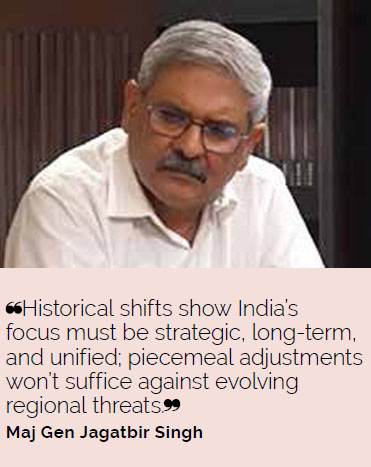 What we have to realize is that if you want some stuff, you have to get it out of them. They’re not falling over themselves to sell us. So, whilst we will probably want to continue buying from the US, the amounts are not very significant.
What we have to realize is that if you want some stuff, you have to get it out of them. They’re not falling over themselves to sell us. So, whilst we will probably want to continue buying from the US, the amounts are not very significant.
Kamal Malhotra: Trump has a formula. Three things in the formula, if you look at what’s happened in Japan, South Korea, Indonesia, etc. One of the things he’s upset about, he went public, what was how many times, saying India has agreed to reduce its tariffs to zero. India can’t reduce its tariffs to zero. But Trump said it ten times. And India obviously can’t agree; you can’t agree to reduce your tariffs to zero in agriculture or in dairy products or even in much of manufacturing because the small and medium enterprises will get wiped out.
So, but he wants that. The other is, he wants you to buy large amounts of LNG or natural gas or whatever. The third is defense-equivalent. He wants all of these things. You have to have the money to buy these things. The fourth I was going to say, which he got Indonesia to agree, is to buy Boeing aircraft. It will be a political disaster for India after the Air India crash to start buying 50 Boeing aircraft as Indonesia did.
So, the deal with the US on trade is going to be very difficult. And the only pressure he’s putting on Russia is very convenient. India is the soft spot. So, he’s using the tariffs on oil.
And I have repeatedly from the beginning said that not only is it unethical to be buying oil, from Russia, which as a United Nations person, has violated the UN Charter, international rule of law, in every kind of way. You are certainly fueling the killings in Ukraine by giving Russia revenue. But even if you leave that aside, it is foolish economically to increase your dependency from less than 2% that India had before the Ukraine war to 42%.
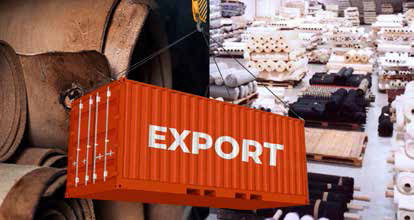 It is not that easy to diversify back. China only increased its oil purchases from Russia from 13% to 16%. Not a big deal.
It is not that easy to diversify back. China only increased its oil purchases from Russia from 13% to 16%. Not a big deal.
Navin Berry: Rami, your take, we moved away from tariffs, we moved away from defense. What is your take? You are a specialist in conflict management, but this is all conflict. So, what’s going to be your advice on resolving this conflict?
Rami Desai: I largely focus on the northeast of India. And I think while we’ve spoken about capability and we’ve spoken about capacity, I think there is a huge deficit in the scholarship that we have today. I don’t think we have the expertise to see what is happening on the northeastern front in its entirety. The Northwestern Front has always had a lot more interest. And we’ve always been observers of the Northwestern Front, far more than we’ve ever looked at the Northeastern Front. But now with the situation in Myanmar, now with the situation in Bangladesh, I think we have a problem that we are not being able to really see clearly because we don’t have all the information and we’re not being able to connect the dots.
To look at what is happening on the northeastern frontier, you have to look at now these two countries together. One of the first times the focus came onto this frontier recently was before the regime change. People started talking about it and the regime change happened. That is also one of the times that we saw the US being spoken about on this front. We simultaneously saw in Myanmar in 2021 the fall of the government and the tactical takeover.
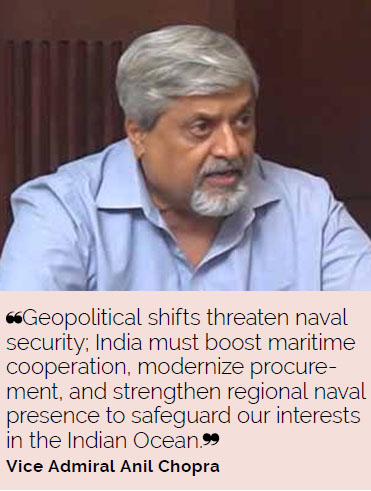 That also became problematic for us because we weren’t really paying attention to that. The second time the US came into focus was recently on this frontier, was with the announcement of the humanitarian part and which was a proposed corridor. And of course, US policymakers can say we have nothing to do with it. But observers would differ. They’d say they have very much something to do with it.
That also became problematic for us because we weren’t really paying attention to that. The second time the US came into focus was recently on this frontier, was with the announcement of the humanitarian part and which was a proposed corridor. And of course, US policymakers can say we have nothing to do with it. But observers would differ. They’d say they have very much something to do with it.
Because if you looked at the chain of meetings that happened just before the humanitarian corridor was announced, also the interest in the Rakhine State, in Myanmar, with Arakan army becoming the most formidable enemy or ethnic armed organization in Myanmar, it became pretty evident there were even reports of USAF planes landing from a country with DIA operatives that were offloading cargo in Dhaka. So of course, then they backtracked and there was a lot of cry about it and that didn’t go through. So, what does that tell us? It tells us that there is a certain amount of interest that is coming in from Western powers, so as to say. Even when Sheikh Haseena, before the regime change, it was the US that put sanctions, not just on Sheikh Haseena’s government, leaders from her government, but also the Rapid Action Battalion Force, which is the elite paramilitary force, which is fairly surprising.
In Myanmar, you mentioned, the critical earth minerals, that China, was the first thing that they threw at them. One of the reasons that that was the first thing that they threw at them is because 90% of the mining, the critical earth and heavy rare earth elements is done in Myanmar, shipped to China, processed in China, and 80% of it lands in the US. Though US and European Union has a policy that they will not buy from conflict areas, they don’t have a policy that says that they won’t buy from second party. They also have publicly stated that they’ve had two or three parties from Myanmar come and offer them rare earth rights in Myanmar. So what I see, and this is where I see that a lot of scholarship lacks, is what is a predictive analysis for the next 20 years?
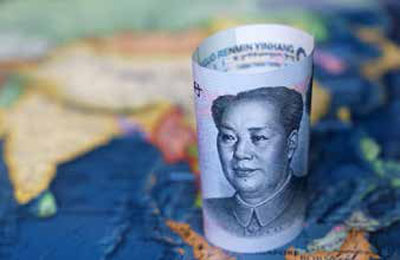 What is going to happen on these areas? I believe what is going to happen is I think this is going to be the Great Game East. This is where a lot of contestations are going to happen, a lot of geo-political, geo -strategic contestations are going to happen. We must remember there’s a huge footprint of China in Myanmar with the Kyauphyya port, which is leased by Myanmar to China with their gas and oil pipeline that goes from the Bay of Bengal right up to Yunnan.
What is going to happen on these areas? I believe what is going to happen is I think this is going to be the Great Game East. This is where a lot of contestations are going to happen, a lot of geo-political, geo -strategic contestations are going to happen. We must remember there’s a huge footprint of China in Myanmar with the Kyauphyya port, which is leased by Myanmar to China with their gas and oil pipeline that goes from the Bay of Bengal right up to Yunnan.
We’ve also seen some of the most high-powered meetings. And the largest trade delegations are to be received in Bangladesh, the Chinese trade delegation. There were over 100 businessmen that attended. So, we have seen all of this. And there’s the question of the Air Force base also in Bangladesh.
And then there’s the U.S. also that seems to be interested. They definitely seem to be interested with the kind of statements that have been made. And that is all going to affect our borders on the northeastern frontier. Having said, I do believe that a lot of the repercussions of the political instability in both these countries, we will have to bear with. And I’m not quite sure if we are ready for it at this point, because when you talk about Pakistan also, Pakistan is coming to Bangladesh in a very big way. We talk about the Rohingyas, but I think only a couple of months ago, that the Four Brotherhood Alliance was formed as a proxy of the ISI.
And they’re being trained by the ISI in Chittagong Hill tracks, which includes four of the main militia groups of the Rohingyas. We’ve also seen a role of Turkey; Turkey coming into Bangladesh with, we saw an NGO which took out a paper, in Dhaka University, that envisioned a greater Bangladesh that included West Bengal and the North East. It’s a Turkish backed NGO. So, I think there are going to be a lot of these interests that are going to come. And I think we have, as much as I don’t like to say this, we have a serious deficit of scholarship on this area.
General Jagatbir Singh: So how do you see the Chinese-US clash?
Rami Desai: It’s going to happen with the critical earth minerals. And I’ll tell you why. The minerals that they are mining, these are two of the elements that are used for your EV magnets. Therefore, with the Western fascination with the 2050 goal on clean transition, they need these minerals.
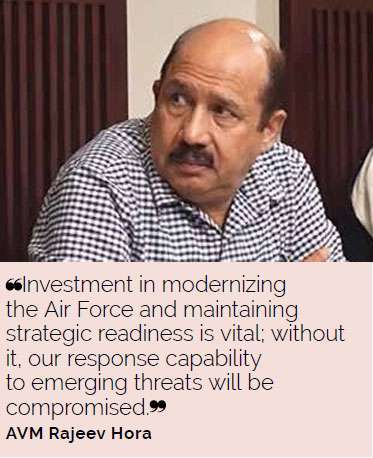 I see it very similarly to the blood diamond politics that happened in Africa. I think that’s the same thing that’s going to happen there. And if the Chinese, and you see what’s happened is the government controls 50% of Myanmar. But the other 50 % is controlled by ethnic armed organizations. Is it one unitary group? It isn’t. It is completely fragmented. In the Chin state, we think it’s just Chin National Front and Chin Brotherhood. Under Chin National Front, there are over 16 groups. And under the Chin Brotherhood, there are another 15. And they’re all clashing with each other.
I see it very similarly to the blood diamond politics that happened in Africa. I think that’s the same thing that’s going to happen there. And if the Chinese, and you see what’s happened is the government controls 50% of Myanmar. But the other 50 % is controlled by ethnic armed organizations. Is it one unitary group? It isn’t. It is completely fragmented. In the Chin state, we think it’s just Chin National Front and Chin Brotherhood. Under Chin National Front, there are over 16 groups. And under the Chin Brotherhood, there are another 15. And they’re all clashing with each other.
So what’s going to happen is they’re going to want to somehow generate money to improve resistance alike. What are they going to do? And because I’ve done fieldwork there, sir, and I’ve recently met all the ethnic armed organizations, I can tell you that they’ve already marked over 1,000 spots for critical earth mining. And they are willing to lease that out to whoever it will take. Now, the problem is, Kachin Independence Army, which is closer to China, already is selling; they sell it in soil, so trucks go. So, they are selling it to China anyway.
Now they’re saying, we want to sell it to India. But we have no processing. How do we take it? Also, China doesn’t have to worry about environmentalists and so on and so forth. Because once you mine, 20 years, that soil cannot be used. We’d worry about it. Also, we’d be taking it from an ethnic armed organization. So who’s going to come in? Countries that are able to take on these fragments are going to come in. And the question now lies that it’s in our backyard.
General Jagatbir Singh: Will the US be able to take it from ethnic armed organization?
Rami Desai: Sir, I’m not sure how they will process it. There are many observers that have said that India and the US could come together on this.
Navin Berry: Ambassador, what is your take on all this? On the discussions so far. And my other question is a very layman question again. How much should India engage or be concerned with what’s happening in Myanmar?
Ambassador Gautam Mukhopadhya: With due respect, I have some differences of opinion and interpretation as well. So if we look at all that has been said. coming from the trade side and all of you from the military side have said, and what you have said to the neighboring side, I think there are two or three big picture things that we should keep in mind. Basically, the backdrop and the framework.
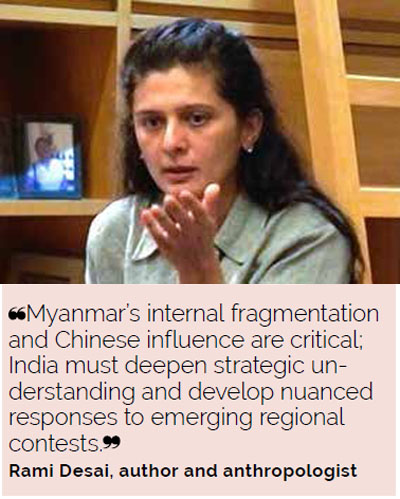 I think what we are seeing is really the question of the rise of China and the decline of US. Now, the United States is far ahead. It might take some time for it to really reach that position. But the signs are there. And one of the very signs of that is simply Trump’s slogan, make America great again, is an admission that they are sliding and they need to make up for lost time, right? But even within that relative power that they have at this moment of time, the Chinese have shown that they are able to exercise power far more capably than the Americans. Americans may have greater power, but their use of it is unwieldy, ineffective. And we’ve seen what they have done with their wars. This is one.
I think what we are seeing is really the question of the rise of China and the decline of US. Now, the United States is far ahead. It might take some time for it to really reach that position. But the signs are there. And one of the very signs of that is simply Trump’s slogan, make America great again, is an admission that they are sliding and they need to make up for lost time, right? But even within that relative power that they have at this moment of time, the Chinese have shown that they are able to exercise power far more capably than the Americans. Americans may have greater power, but their use of it is unwieldy, ineffective. And we’ve seen what they have done with their wars. This is one.
The second big macro development that we have to face, and all this sort of fits in in some respects, is that in South Asia itself, we have lost out. (At least, from our earlier position of strength). There was a period when everyone, practically, even the United States, and certainly China, accepted that South Asia was our backyard. And in fact, advised many of the smaller countries that occasionally wanted to challenge us or wanted to defy us, that, you settle your business here.
Today, China has become, in a sense, the arbiter of virtually anything that happens in South Asia. And every country in our neighborhood, which has problems in India, and as the larger country, the larger economy, the larger power, every country will have problems in India, is getting very adept at leveraging. Now, once in a while, we may be able to pull back from the brink, like in Sri Lanka or the Maldives, where things have changed hands from time to time.
I’d also say that in many ways, we are chasing the wrong world. Because if we take, for example, the issue of the Bay of Bengal. We have invested a lot of rhetoric. We have invested a lot of thinking, you can say, on the port, on the South China Sea, on the Indo-Pacific. But again, something that I’ve been talking a lot about, is the single biggest channel in the maritime dimension that we are having is the China – Myanmar Economic Corridor, the CMEC, and the deepsea natural harbor that the Chinese are developing in Kyaukphyu. Arguably, the Kyaukphyu harbor is the best natural harbor in the entire Bay of Bengal. The Chinese are developing an SEZ, and operating oil and gas terminals which they will securitise.
And we’ve spent a lot of time talking about conspiracies involving the Americans, humanitarian aid through the Arakan Army, which is illogical. We could go into a separate discussion on that. Because it just doesn’t make sense for Arakan Army to cooperate with the Americans against the Chinese, to build Chinese exercises. So, if you just see the logical play, this doesn’t work. I’m not denying that Americans have done something, but in the end, it will not work simply because it doesn’t make logical sense. But we are ending up demonizing the Americans when the Chinese are literally there and they’re not talking. This is more of a threat to us than compared to our interest in the South China sea.
We are not even talking about the submarine base with which the Chinese, reportedly, having access to India and Bangladesh. And now with the new dispensation. This happened with the old dispensation. Now with the new dispensation, what that means.
So there is this picture overall in which we are functioning. And then on the economic front, look, we acquired some respect at the turn of the millennium, Y2K, when people saw India as an emerging economy, a rising power. I happened to accompany Defense Minister George Fernandes on an ice-breaking trip to China during the height of SARS in 2004. Karan Thapar had cornered George Fernandes into saying China is the enemy number one. And the Chinese began to feel, okay, you know, grudging respect for us, they need to get Fernandes back to their side a little. And roughly, they had a period from about 2010 to 2012.
And this was the period when we had the agreements on the guiding principles in 2005 and another agreement in 2008. When they even talked about Asia being big enough for China and India together. Now, sometime starting around the second decade, when the Chinese began to feel that we are drifting towards the American camp for whatever reason, they started questioning us more and more. And in fact, they predicated our future relationship on the distance that we can make from the United States. And as Admiral Chopra says, in this situation that we have today, which is the country that can help us? Because China is going to be your strategic, not just rival, but possibly a little more than that in the coming future.
And in that context, our relationship with the United States is really degenerating. And it’s actually, even though, really speaking, it’s in many ways President Trump’s capriciousness, his erratic and kind of unpredictable behavior that has brought this about. The fact is that we have not been able to handle it. We thought we were playing this multi-alignment, multi-polarity game. In fact, we have landed up in the middle, we didn’t recognize that the world was really tricentric, that Russia was a pole in this tricentric world.
And we had real risk and danger of landing in between all these things. And that grudging respect that we had in the second decade, or first decade of the 21st millennium, built largely on our IT successes. Now there’s a new revolution, the AI revolution. And in the AI revolution, China is way ahead. And we are nowhere there. So if you look at it, your macro perspective and your macro prospects, actually, we don’t have the elements.
Kamal also made the point that we have really nothing that the world desperately needs. So we have a situation where we need the Americans. And because the Americans also have an objective rival in China, What the Americans need to hear is that they need us. At this point of time, this kind of capricious policy is going to harm them as well. I’m not saying we should be an ally in the conventional sense, but we need to have a much harder grip on our national interests, which I call real interests, and not be deluded, really.
Even now, we are trying to project things as great successes. Whereas, in fact, if we look at our neighborhood in the world, frankly, at this moment, we have never been more friendless. So I think this is the realization. And as far as Myanmar is concerned, again, Myanmar, we have, you know, there was a moment. There was a moment when people had made the right moves. We should, if you see our history and if you see our movement, independence history, we basically, until about the late 50s, we stood for people power more than brute force. And increasingly now, we are thinking that brute force is what is going to get us the dividends.
Navin Berry: One very quick point on Afghanistan. Your take on what is happening?
Ambassador Gautam Mukhopadhya: Right now, Afghanistan is in a state of freeze but what is interesting is that China has prepared itself with what they call their China-Pakistan-Afganistan relationship. So what the Chinese are trying to do there, and I think again that is very very significant, is that the Chinese have over the last few years, and in a way I would even explain what is happening in Ladakh related to that, is, you know, they invested a lot in this.
Vice Admiral Anil Chopra: Which is this corridor which has opened up in Azerbaijan and Armenia?
Kamal Malhotra: Oh, that’s the Trump corridor. The Trump Peace corridor. I mean, if you want to talk about Armenia or Azerbaijan, I used to be the head of the UN in Turkey, so I know this rather well.
Ambassador Gautam Mukhopadhya: But now in Myanmar, what is happening is, the Myanmar regime has read that the geopolitics has changed totally. Trump has no idea where Myanmar is. Somebody briefed him, as you say, about rare earths. He doesn’t even know that the rare earths are actually in Kachin areas. But once he discovers that they’re in Kachin areas, actually the Kunda will not be of much use for him. He will have to start dealing with the Kachins.
But they have read the picture, and they are now seeing Trump has withdrawn. He has withdrawn the USA. But on the other hand, you are seeing that the Russians are coming out, the Chinese are coming out, defying the Americans. And the Chinese last year decided to take sides openly. And they have put almost unbearable pressure on the PNLA, on the MNPA, even the PIA, relax their offensive, or at least to stop their offensive. So, the Myanmar army also sees an opportunity in this to push ahead their elections, to raise their offensive against the ethnic armed groups. And in the last two weeks, or last month, they have made significant gains in capturing towns that opposition had captured and held for practically close to a year. So, you know, the situation is that Myanmar too is going to come more and more under China’s influence, if not control. And we just don’t seem to be talking about this. In fact, they will be literally at your boundary.
Navin Berry: We look at South Asia, we see Afghanistan, we see Pakistan, Nepal, Sri Lanka, Bangladesh, South Asia. Why is Myanmar suddenly becoming more important to us?
Ambassador Gautam Mukhopadhya: So actually, it was always important. We forgot it for 50 years. From 1960s to 2010, we forgot it. And we only rediscovered it once the Kunta liberalized. Once we faced terrorism based on it.
Navin Berry: So Ambassador Bisaria, our focus today has been essentially South Asia, and we’re looking at the shifting sands over the last two months or so, when a lot of dramatic changes have happened. And the idea here is to discuss first we’ve seen a naval perspective, an Air Force, an Army, and then we’ve seen a tariff perspective from Kamal, and then Rami put in an analysis of Northeast and Myanmar, and then Ambassador Gautam, what they talked about Myanmar and the East. How do you see relations taking us backward, forward, changing scenario, America’s interests, Chinese interests, Pakistan there, Bangladesh there, how do you see where we are today in South Asia.
Ambassador Ajay Bisaria: Let me just talk of the big picture because we had a very interesting granular discussion on Myanmar as a case study. If you look at the big picture, I think for India and its neighborhood, it’s a story of India being some kind of island of stability in a sea of fervent. If we see, for instance, the neighborhood, we start with two hostile adversaries and neighbors in Pakistan and China, one led by a rogue army, the other by, in many ways, a rogue communist party. We also see two failing states. And as Rami said, in February, we saw a coup in Myanmar.
In August, we saw a coup of 2021 in Afghanistan, and two virtually failing states to our east and west, where we struggle to make sense of it and to have a sufficient degree of influence. We also see then other states which are playing the China card in different degrees, balancing, leveraging, hedging, whatever you’d like to call it, and then going through their own stories of fervent. And one of the points I would make is that we can’t blame ourselves for a lot of dynamics which are internal to those countries, which we neither have the will nor the capacity to influence. So, if there are coups in Afghanistan or in Myanmar, we had nothing to do with it. We couldn’t influence it. There was a near coup in between these in Pakistan when in May 23, the PTI of Imran Khan tried to almost dislodge the army. That didn’t work.
And what we see with the other states is we saw Sri Lanka go through its own revolution in 2022 and it came back on the rails. Bangladesh went through its coup last year and didn’t come back on the rails. So, there is an electoral process that will come.
And we know what happened in Maldives, in both Bhutan and Nepal. They went through their revolutions in the 2010s earlier because they kind of dislodged the monarchies and became democracies. In that context, we are also unmistakably the big brother. And we also have the China factor, which is real and present in the neighborhood. What we have done in various shapes and forms has followed the neighborhood first policy. So not just in its present avatar but perhaps from the 90s, from the Gujral doctrine onwards.
And that is essentially based on an asymmetric, an understanding of asymmetric benefits. And I would summarize it as saying that India’s social contract or political contract with the neighbors was, I will give you disproportionate help in your prosperity if you give me support in my security. That is my red line. So, help me in my security and I will help you in your prosperity. And therefore, we give $4 billion to Sri Lanka when it faces its ‘22 crisis. We give $8 billion of LOCs to Bangladesh when it faces its crisis.
And we try to help the other neighbors as well. Now, I would accept the proposition that for both the difficult neighbors of Afghanistan and Myanmar, and to an extent Bangladesh, we don’t have sufficient scholarship. We don’t have sufficient depth in our policy making and policy thinking environment therefore of being able to deal with these problems. We also don’t have sufficient covert capacities which we require to deal with issues like the Arakan army and so on and at least I think we don’t have enough capacities to deal with some of this. So I would say that we shouldn’t be blaming ourselves too much, but we need to be able to put in more resources. So, for instance, Maldives, we saw start with India out and then back to Modi and India in just a couple of months ago.
So, they would go through a process. We expected Sri Lanka with Dissanaike to go completely into the Chinese embrace. That didn’t happen. We were the first movers there. So, I think we would have to keep moving, spending disproportionately and getting the benefits.
Now, countering China is important, watching Pakistan’s play is important. That I think is significant because in Bangladesh, Pakistan will fish in those troubled waters, try to get the ISI in, try to use that to get ferment into the Northeast. That will be a given. So, we will have to counter that in multiple ways, even if the elections next year produce a more India-friendly regime. And I would have advocated in Bangladesh that our External Affairs Minister, Jaishankar, should have visited Bangladesh, just like he did Sri Lanka, despite the fact that there was some degree of hostility early in the game. Because I think we need to turn them around. We need to accept that they will be playing their part.
We cannot play the card of having the big powers play against each other. We try to get the Russians into Bangladesh. It helped us. We did a trilateral deal in the nuclear power project. But the US will play its own game. It won’t necessarily accept a Monroe Doctrine like to say, India, this is your hegemony in South Asia.
A word on the US. I think the way to look at Donald Trump’s revolution and the United States is that it is a kind of statement of the United States as a hemispheric power. That he does see the world as spheres of influence and the western hemisphere, Europe, Canada and the region is where he wants to be the dominant hegemon and elsewhere he is what they think is the external balancer. So, he would come into Europe and stop the war. He would come into West Asia and stop the war as the external balancer. But the MAGA guys don’t want boots on the ground. They don’t want forever wars. We hope that he becomes a resident power in the Indo-Pacific because of the China challenge. And which is going to be the dominant challenge for the United States and for us. And I would agree with the thought that let’s not go by the month of August. It’s been a short month where the relationship with the US has tumbled. I see it as turbulence.
I see if we play the long game by the end of the year, you’ll probably have the two wars in the world ending. You’ll have therefore the tariffs being reversed. and you’ll probably have a situation where you have a trade deal and you’ll probably have a situation where Donald Trump comes in. That’ll be my best case scenario in November to sign the deal.
So, our essential critical strategic partners will remain the United States and Russia, and we tell both of them, we have a core national interest in the other, so don’t screw around. China will remain the strategic rival in the next 30 years and what we are seeing right now this month is a tactical adjustment not a strategic one.
Navin Berry: I was thinking of your business diplomacy akin to a chess game. A chess game where each side is playing its pieces. We have a very quick tendency, in India, particularly in the media, every time there is a check, we conclude it’s mate. It’s not mate yet.
It’s a challenge. And each check has its different dimensions and proportions. Some of it is very easy to digest and get away with. Some of those checks become a bit of a bigger challenge. So, the game is going on. And we tend to forget that a lot of this, what is happening to us, is a result of other people’s compulsions, other people’s, shall we say, domestic compulsions.
So, now one thing which strikes me again as a non-specialist, I’ve been calling myself that repeatedly because I could be way off the mark, that the Russian oil was not such an issue till one month ago. Why has that become suddenly a big issue? Because Trump was of the opinion that by now, he would have solved the Russian-Ukraine war. It hasn’t come to pass. So, this is pressure on India and Russia, over India, to tell Russia to bend in Ukraine and agree. So, he’s using us to pressure Russia.
Ambassador Ajay Bisaria: Absolutely. And you know, to bolster your point, with the Biden administration requested us to please buy Russian oil, please buy it in that band, stabilize prices, have the price cap.
Kamal Malhotra: The problem is a lot of Indians seem to only want to read what they want to read. Lindsey Graham, the Republican Senator from Carolina, long ago tabled in the US Congress his bill which had 500% tariffs and he’s got close to 100 congressmen. This is quite independent of Trump. Now, my own view is of course different, which is that I think it’s been a problem from day one for moral and ethical reasons. It is blood money, basically to support a war, that has fueled a war, through a country, through what the UN regards as a war criminal.
Ambassador Ajay Bisaria: If we make that argument that Russian oil supports a war criminal, so does Russian defense equipment. We are buying BrahMos missiles and we got S-400 air defense systems and the reason we are sitting in Delhi and having this conversation is that no Pakistani missile or Pakistan-Chinese missile penetrated that air defense system. In a realist assessment, are getting our defense and energy needs from the Russians as much as from the Israelis, you might argue that there’s another war criminal there who can order genocide. And from the United States, which also has its hands very bloody in a number of things. So, what choices do we have if I want to protect my country from an attack from a Pakistan-China situation.
Ambassador Gautam Mukhopadhya: I want to pick up a point that Ajay made. This belief that we don’t really have the capacity, the diplomatic capacity to sometimes intervene in our neighbourhood, this hasn’t stopped us in the past. But let’s take Myanmar. If there is one country, this movement in Myanmar is basically powered by a desire for democracy and a desire for federalism.
What are the two fundamental things? Democracy and federalism. Which country in the neighborhood and perhaps which country in the world has greater credentials to be able to address those concerns? And we don’t lack diplomatic capacity. We may lack academic capacity, but going back to Shyam Saran, we have enough people who are capable of doing that kind of work.
Again, on the neighborhood. Yes, I agree with you that to a great extent, some things happened outside our capabilities. And your point about the basic contract that we made, security versus prosperity. But, as I said the basic template that we have used in our neighborhood, to come back to the neighborhood, is that we are either the good big brother or the tough big brother. And one way or the other, it is a big brother kind of complex that we exercise in our neighborhood. I think we need to be just much more respectful, number one.
But the single biggest thing that we can do for the New World Order to create that stake in home prosperity is to open our agricultural markets. We don’t need to open our agricultural markets to the Chinese. We don’t need to open them to the West. Our CEP propositions we have taken are fine. But we have nothing to lose by opening our agricultural markets to our poor, even poorer, members around us. And that’s the single thing that we need through the stomachs of the farmers that would buy it.
Navin Berry: I would add tourism. Sanat Kaul, an aviation expert has an extensive study where he is saying your UDAAN scheme can be made available to South Asian neighbours as a significant step to promote Indian tourism with our neighbourhood. And I think that’s something which we can do very, very easily. The other is that we have this LTC. So, these are small little sops that can go a long way.
But my very serious question to all of you, can India be written off by any of us? Are we being so naive, if I may say so, in thinking that we actually we don’t count in their scheme of things. Number two, if you see the pattern of Sri Lanka, if you see the pattern of Maldives, there is the run up to the elections in their countries, where India beating becomes fashionable. They come to power, they are there for six months, eight months, they see the reality of India, they can’t do without India. So you see the turnaround in Maldives, with huge turnaround, where Prime Minister Modi is chief guest at the National Day. Sri Lanka, the present Premier was all anti-Indian. His entire program was anti-Indian. It softened up. Total turnaround. I don’t know how long Pakistan can cozy up to China.
Vice Admiral Anil Chopra: Can I just take two phrases which have been said by both of you as sort of sum to this. You made a very interesting statement on this region. China has become the arbiter in every country in South Asia, other than India. Whether it’s Bhutan, Nepal, Myanmar, Bangladesh, or Sri Lanka. India beating before elections is like America beating Arizona!
And then we go back to them, because they’re critical. Every time there’s a discussion, everybody finally realizes that where else to go. And therefore, whatever the personal issues about the Americans, the government acts in a particular way through successive governments of many types. The government in very much a way what we are facing today. Because of these tariffs, we are demonizing America at the moment, which always happens in a jingoistic sort of way. But we have to be careful, I’m sure everybody will agree, that we don’t let this rise to a situation where everything gets damaged for a long period of time.
Then we will be shooting ourselves in our own foot. And if you really think that the Russians can provide, the kind of defense schools which are coming up in 21st century warfare, China is not going to give it to us. Russians can’t. And if you don’t have some access to private technology, private companies in the US, then our defense industry will. I keep coming back to it. Your power stems from your ability to make state-of-the-art weapons.
If you don’t have that, then you we are, in your words, forever leveraging, hedging and balancing. What you accuse these three countries, our neighbourhood, doing with us, that they hedge and balance and leverage China and India, we are constantly leveraging US, China, Russia. Why are we leveraging? Because we don’t have power. Why are they leveraging?
They don’t have power. So, the bottom line is that even now, if we focus on all this geopolitical level sort of games. But what is not a game is our defense industry base. And if you don’t get it from interaction with companies from the West, where are we going to get it from?

